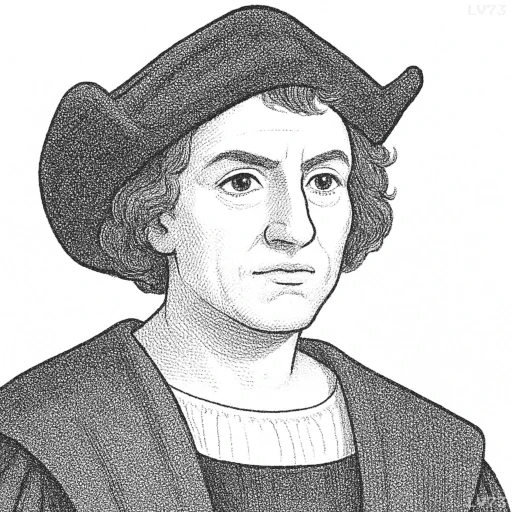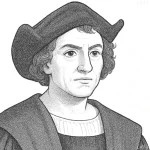“I have come to believe that this is a mighty continent which was hitherto unknown.”

- August 25th to October 31st, 1451 – May 20th, 1506
- Born in the Republic of Genoa (now Italy)
- Explorer and navigator
table of contents
Quote
“I have come to believe that this is a mighty continent which was hitherto unknown.”
Explanation
In this quote, Christopher Columbus expresses his belief that the land he encountered in the New World is not just a group of islands or a part of Asia, as he had initially suspected, but rather a vast and undiscovered continent. His realization marks a pivotal moment in the history of exploration, as it signifies the moment when Columbus began to understand that the lands he had “discovered” were not the far eastern territories he had been searching for, but rather an entirely new and unexplored landmass—one that would later come to be known as the Americas. This recognition would lay the foundation for later European colonization and the reshaping of world maps.
Columbus’s statement reflects his gradual shift in understanding as he navigated the Caribbean and the coastlines of the Americas. However, it also highlights his initial confusion or misjudgment about the nature of the lands he encountered. Columbus, despite his long experience as a sailor and navigator, continued to cling to the belief that he had reached the outskirts of Asia, and it would take many more voyages before Europeans fully understood the scope of the Americas as a new world. His eventual belief that the land was a “mighty continent” shows his growing sense of the scale and significance of what he had found, but it also reflects the broader misconceptions and mistakes of European explorers during the Age of Discovery, who often misidentified or misunderstood the lands they encountered.
In modern terms, this quote can be seen as a turning point in the history of geographical exploration, signaling a shift from the Old World’s understanding of the globe to the realization of a vast new landmass that would dramatically alter global trade, politics, and culture. Columbus’s discovery, while significant in terms of connecting Europe with the Americas, also highlights the imperial mindset of the time—where the discovery of new lands was often viewed in terms of dominion and exploitation, rather than the recognition of new cultures and civilizations. The quote may also prompt reflections on how the discovery of new continents changes not only geographical knowledge but also the way people understand their place in the world. Today, we can appreciate Columbus’s insight as a moment of historical transformation, while also acknowledging the complex and often destructive consequences of European colonization for the indigenous peoples of the Americas.
Would you like to share your impressions or related stories about this quote in the comments section?
